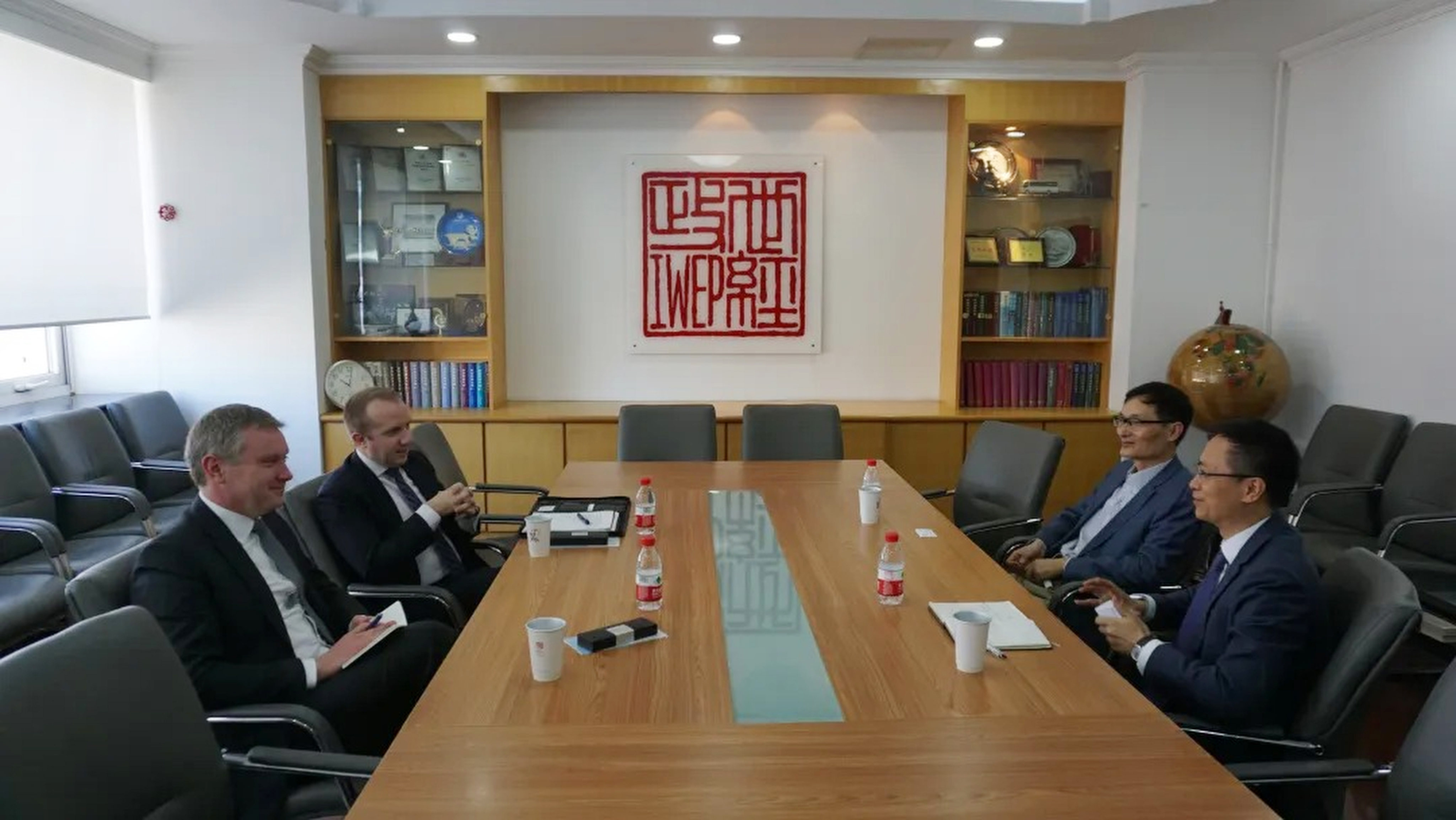Despite Trade Tension, China And Us Keep Lines Open On ‘issues Of Common Concern’

China and the US have kept their contact channels active amid their escalating trade war, with American financial diplomats visiting a Chinese government-affiliated think tank in Beijing this week.
Oliver Melton, the US Treasury Department’s outgoing finance attache in China, and his successor Tyler Makepeace visited the Institute of World Economics and Politics (IWEP) at the Chinese Academy of Social Sciences (CASS) on Wednesday.
They had “in-depth exchanges on topics including China’s macroeconomy and China-US trade relations” with Zhang Bin and Xu Qiyuan, two of the institute’s deputy directors, the organisation said on Wednesday without giving details about the discussion.
The meeting adds to signs that Washington and Beijing have been working to keep the lines of communication open since Donald Trump won the US presidential election in November, although tensions between the two powers remain high over a wide spectrum of issues, from tariffs and tech rivalry to Taiwan and the South China Sea.
CASS, while operating as a ministry-level body directly under the State Council of China, the country’s cabinet, is widely viewed as part of the Chinese central apparatus. It not only conducts think tank research but also gives policy advice and produces internal reports to support government decision-making.
US Treasury financial attaches serve as critical liaisons between Washington and the economic systems of the countries in which they are posted. In addition to their intelligence gathering role, the attaches provide logistical support for visits by department officials, American government financial regulators and others, including putting them in contact with relevant host country counterparts.
As another notable example of the two nations trying to stay connected, Chinese vice foreign minister Ma Zhaoxu met the deputy chief of mission at the US embassy in Beijing, Sarah Beran, on January 16 for an “in-depth exchange of views on current China-US relations and issues of common concern”.
That meeting was four days ahead of Trump’s inauguration and just one day before his phone call with Chinese President Xi Jinping.
During the phone conversation, Trump said he looked forward to meeting Xi soon, raising expectations of a high-stakes in-person meeting between the two leaders.
IWEP has hosted numerous visiting US envoys, scholars and former government officials over the past two years.
The institute “has been closely involved in extensive international collaboration and exchange programmes with leading international think tanks, universities, international organisations and the relevant departments of foreign governments”, according to its website.
In September, a five-person delegation led by then-US State Department chief economist Chad Bown and senior adviser Kari Heerman visited IWEP where they discussed issues such as China’s economic situation and the changing international supply chain with Chinese experts.
That was just four days before a meeting between then US secretary of state Antony Blinken and China’s top diplomat, Wang Yi, in New York, although there is no indication of a direct link between the two events.
The engagement this week comes as China and the US ratchet up trade tariffs and retaliatory action.
In the latest escalation, Beijing summoned Walmart executives for regulatory talks on Tuesday, a day after additional Chinese duties on a wide array of American agricultural products took effect.
An investigation into China’s trade practices, as ordered earlier by Trump, is expected to conclude by next month and its results could form the basis for further trade actions against Beijing.
According to China’s top envoy to Washington Xie Feng, bilateral relations “have once again reached a critical crossroads”.
“Maximum pressure, tariff wars or trade wars won’t work. Investment restrictions are futile,” he said, according to a transcript of a speech he gave in the US on Monday.
Beijing has been placing increasing emphasis on people-to-people diplomacy with the US, including America’s business community and strategy circle, since the relationship between the two countries plunged to a freezing point in early 2023.
Also in Beijing on Wednesday, Liu Jinsong, head of the Asian affairs department at the Chinese foreign ministry, met Susan Shirk, research professor at the University of California San Diego school of global policy and strategy and director emeritus of its 21st Century China Centre.
Shirk, who was a deputy assistant secretary of state in former president Bill Clinton’s administration, had “academic exchanges on Asia-Pacific affairs” with Liu, according to the Chinese ministry.
Popular Products
-
 Tennis Racket Lead Tape - 20Pcs
Tennis Racket Lead Tape - 20Pcs$31.99$21.78 -
 Large Wall Calendar Planner
Large Wall Calendar Planner$47.99$32.78 -
 Child Safety Cabinet Locks - Set of 6
Child Safety Cabinet Locks - Set of 6$60.99$41.78 -
 USB Touchscreen Heated Fingerless Gloves
USB Touchscreen Heated Fingerless Gloves$87.99$37.87 -
 Golf Swing Trainer Practice Stick wit...
Golf Swing Trainer Practice Stick wit...$50.07$10.18